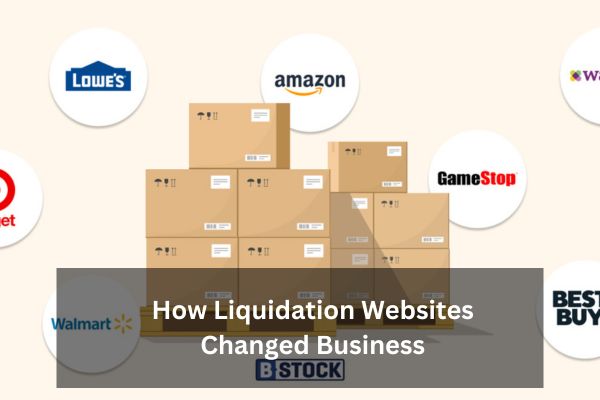The internet has revolutionized how businesses interact with customers and other businesses. While the Internet is not a new concept, many companies still do not fully utilize its potential. Based on our experience dealing with numerous companies, we have noticed a lack of awareness about the online marketplace and its opportunities. Local liquidators who used to be the go-to option have been overshadowed by the emergence of online liquidation websites. This shift has changed the dynamics of the industry.
Rather than relying on a local liquidator, businesses now have the option to work with companies like ours, Bulk Inventory Buyers, who operate solely online. We don’t have a physical location that you need to visit. Instead, we provide nationwide coverage throughout the United States. Moreover, unlike many other companies, we offer upfront payment for your inventory. We come to you, to make the process even more convenient.

By recognizing and embracing the power of the internet, businesses can tap into the vast potential of the online marketplace. Working with an online liquidation company like ours opens up new possibilities and ensures a seamless and efficient experience when dealing with excess inventory or liquidating a business.
Why is liquidation important for a business?
Liquidation is important for a business for several reasons:
Recover Capital: Liquidation allows a business to convert excess or unwanted inventory into cash. By selling off inventory that is not selling well or is no longer needed, the business can recover some of the capital invested in those goods. This can provide much-needed liquidity and help improve cash flow.
Free Up Storage Space: Excess inventory takes up valuable space in warehouses or storage facilities. Liquidation enables the business to clear out this excess stock, creating room for more profitable and in-demand products. This optimization of storage space can lead to better operational efficiency.
Mitigate Financial Losses: Holding onto unsold inventory can result in financial losses for a business. It ties up funds that could be allocated elsewhere, such as investing in new products, marketing initiatives, or operational improvements. Liquidation minimizes the risk of accumulating losses associated with stagnant inventory.
Focus on Core Business: By liquidating excess inventory, a business can redirect its resources, time, and energy toward its core operations. It allows the company to concentrate on selling and promoting products that are more likely to generate revenue and meet customer demands.
Adapt to Market Changes: The business landscape is dynamic, with market trends and consumer preferences constantly evolving. Liquidation enables a business to quickly respond to changing market conditions and consumer demands. By liquidating slow-moving or outdated inventory, the business can stay agile and adjust its product offerings accordingly.
Maintain Brand Reputation: Holding onto obsolete or outdated inventory can have a negative impact on a business’s brand reputation. Liquidation prevents the risk of selling outdated or expired products, ensuring that customers associate the brand with quality and relevance.
Liquidation is crucial for a business as it facilitates the efficient use of resources, minimizes financial losses, and allows the company to adapt and thrive in a competitive market environment. It provides an opportunity to optimize inventory management and focus on sustainable growth.
For any questions related to this article, please contact info@liquidateproducts.com or (224)619-7639